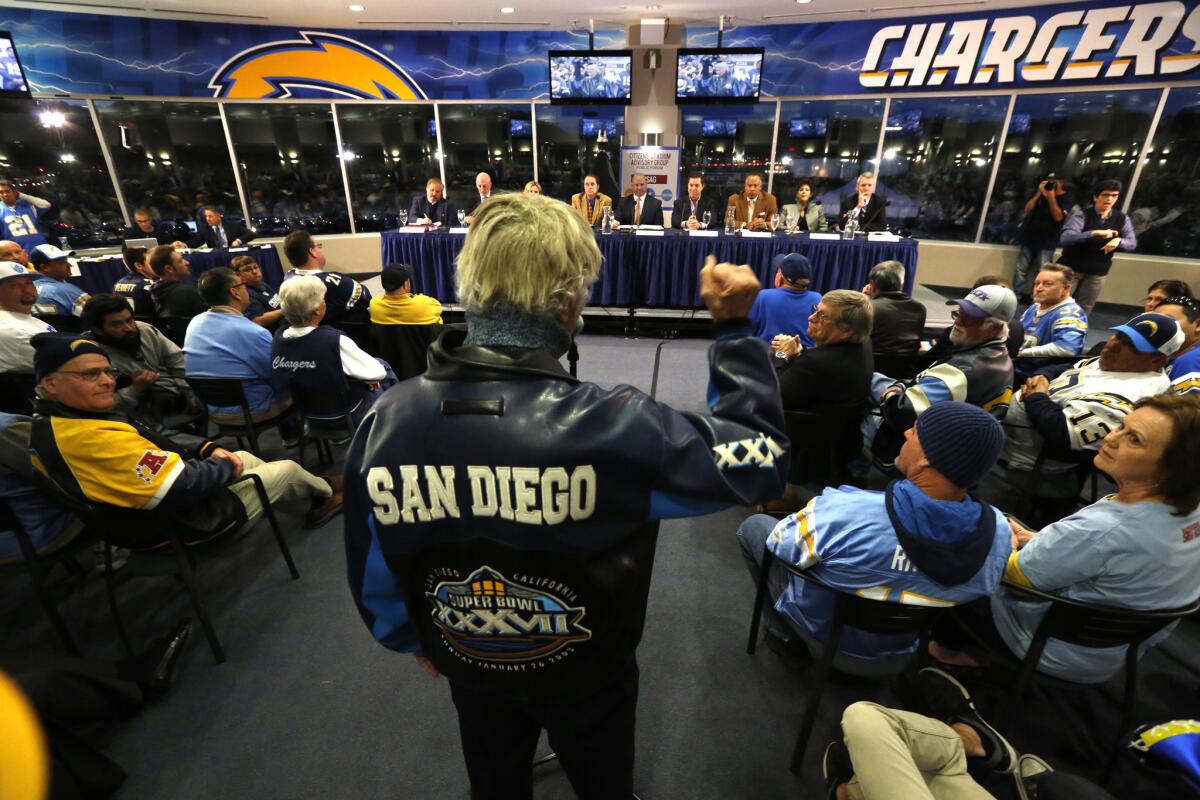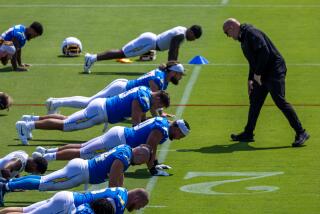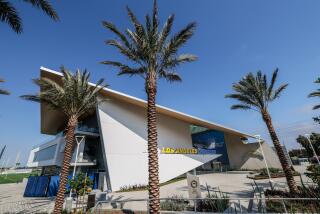San Diego city officials meet with Chargers to discuss stadium issues

Dion Rich, age 85, who says he has attended every Charger home game since 1961, addresses a mayoral committee meeting at Qualcomm Stadium on March 2.
- Share via
For the first time, San Diego city and county officials met Tuesday with the owner of the Chargers and his top advisor to discuss a civic proposal to build a 65,000-seat, $1.1-billion stadium to convince the team not to relocate to Los Angeles County.
The hourlong meeting, at an undisclosed location, comes two weeks after a committee appointed by Mayor Kevin Faulconer unveiled a plan to build a venue to replace aging Qualcomm Stadium at the Mission Valley site.
“It was a productive discussion on a variety of issues and both parties agreed to meet again within the next few days,” Faulconer said in a statement issued by his office.
In attendance were Faulconer, City Atty. Jan Goldsmith, County Supervisor Ron Roberts, Chargers Chairman Dean Spanos and attorney Mark Fabiani, the Chargers’ advisor on stadium matters.
The Chargers declined comment after the meeting.
Faulconer and other local officials are racing to put together a proposal to compete with the plan underway in Carson for the Chargers and Oakland Raiders to jointly build a stadium.
Under the proposal forwarded by the mayoral committee, the Chargers would contribute $300 million, the NFL $200 million, and the city and council would each contribute $121 million.
Also, $173 million would come from construction bonds, $225 million from the sale of 75 acres of public land in Mission Valley, and more than $100 million from the personal-seat licenses and ticketing and parking surcharges.
As devised by the committee, the proposal would not require a tax increase and thus a two-thirds vote of the public. Still, Faulconer has pledged to submit any stadium financing plan to voters even if such a move is not required by law.
The mayoral committee estimated that construction of the the new stadium could begin in 2017 and be finished by the end of 2020.
But timing may be working against Faulconer and others working to keep the team from moving.
In a visit to San Diego in April, NFL executive vice president Eric Grubman said that waiting until November 2016 for a public vote might mean that San Diego is too late, that the team might already have decided to move to Carson for a stadium that can be built faster and offer a greater financial incentive in a larger market.
The Chargers have been mostly silent on the San Diego proposal, noting only that the team’s financing, legal and land-use experts plan to review it. The team has preferred a downtown location, but the mayoral committee said the 166-acre, publicly owned Mission Valley site would offer a quicker and legally easier route.
Follow Tony Perry on Twitter @LATsandiego
More to Read
Go beyond the scoreboard
Get the latest on L.A.'s teams in the daily Sports Report newsletter.
You may occasionally receive promotional content from the Los Angeles Times.










